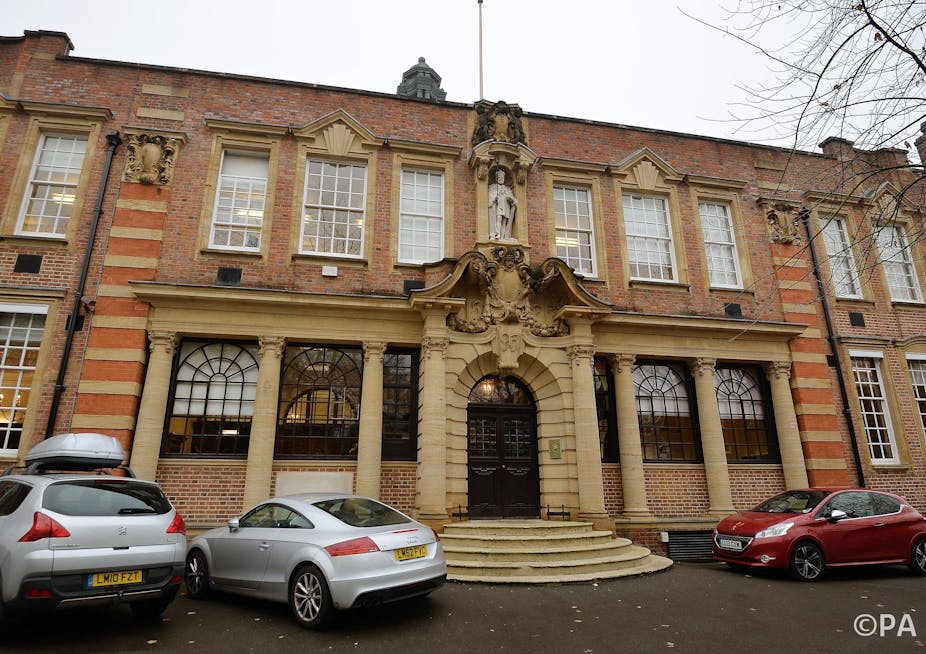The furore over the suggestion by shadow education secretary Tristram Hunt that private schools need to contribute more to state education or face the removal of their tax breaks has been predictable. Representatives ranging from the Independent Schools’ Council to the headteacher of Hunt’s old independent school, University College School in Hampstead, have lined up to defend the role of independent schools, insisting they are already involved in supporting the state sector.
There are roughly 2,600 private schools in the UK accounting for around 7% of the school student population, according to the Independent School Commission. The proportion of children attending such schools has remained relatively stable over the last two decades, according to the Institute for Fiscal Studies. Such schools are diverse in their size and focus, ranging from small faith schools to the bigger, and more well-known, elite institutions such as Wellington College and Eton. The majority have charitable status which affords them a £700m tax break – the subject of Hunt’s recent speech.
Existing tie-ups
Alice Phillips, president of the Girls’ School Assocation has argued that there are already a number of different ways private schools work with the state sector. These range from sharing expertise (both in terms of teachers and admission support for entry to top universities) through to Saturday schools, bursaries and the sharing of grounds and resources.
In addition, the private sector argues that these schools contribute indirectly to some £9.5bn of GDP, according to a report prepared by Oxford Economics for the Independent Schools Council.
Limited appetite for more
It may be the case that some private schools do a tremendous amount to support their local state schools at an individual level. But it’s also clear that the head of schools inspectorate Ofsted, Michael Wilshaw, also doesn’t think that they do enough overall.
In his speech to the Headmasters’ and Headmistress’ conference in 2013, Wilshaw referred to the partnerships between private schools and state schools as “crumbs off your tables, leading more to famine than feast.” He pushed for more independent schools to get actively involved with the academies programme by sponsoring local state schools.
But to date, there has been a limited appetite from private schools to get engaged with the academies programme, despite notable exceptions with schools such as Wellington College intending to create a chain of academies branded with the private school’s ethos. Out of more than 2,000 independent schools, roughly 35 are engaged in some way with the academies programme.
Domain for the super-rich
An increase of private school fees by a fifth in the past five years has become a concern for the sector itself, with some arguing that independent schools are becoming the preserve of the super-rich and that professionals who attended private schools themselves can no longer afford to send their children to one. Catering for a narrower and narrower elite must give us cause for concern.
According to research by the Social Market Foundation published in July, private schools give their pupils a premium of just under £200,000 on their lifetime earning. A 2009 report by the Panel on Fair Access to the Professions showed that more than half of the members of the professions had attended private schools. Part of the reason is the smaller staff-to-student ratios available in independent schools, funded through high fees. Another reason is the network, access and relationships that such schools have built up over decades and which help their students gain entry into the top universities and professions.
Ofsted’s role
It is this central issue that both the Hunt and Wilshaw have emphasised in their challenges to independent schools to do more to involve themselves with the state sector. Such schools do fall under the remit of a “lighter” touch inspection framework, but the current inspection regime could be easily altered to enable them to show how they are engaged with their local communities and supporting the state sector.
With clamours from some quarters for a review of the role and remit of Ofsted and the impending general election next May, it may be that Ofsted could play a key role in shaping a new relationship between the private sector and state schools.
Combined with the increasing concern that the independent sector is in danger of becoming what Andrew Halls, headteacher of Kings College School in Wimbledon has called “finishing schools for the children of oligarchs”, this means it is time to reconsider the future role of such schools.

